
Mullvad Browser is a privacy-focused web browser developed in a collaboration between Mullvad VPN and the Tor Project. It’s designed to minimize tracking and fingerprinting. You could say it’s a Tor Browser to use without the Tor Network. Instead, you can use it with a trustworthy VPN. The idea is to provide one more alternative – beside the Tor Network – to browse the internet with more privacy. To get as many people as possible to fight the big data gathering of today. To free the internet from mass surveillance. In this step by step guide I will show you how to install Mullvad Browser on your Synology NAS with Docker & Portainer. Note: You can also install Chromium, Firefox or Opera to surf the web using your NAS.
STEP 1
Please Support My work by Making a Donation.
STEP 2
Install Portainer using my step by step guide. If you already have Portainer installed on your Synology NAS, skip this STEP. Attention: Make sure you have installed the latest Portainer version.
STEP 3
Make sure you have a synology.me Wildcard Certificate. Follow my guide to get a Wildcard Certificate. If you already have a synology.me Wildcard certificate, skip this STEP.
STEP 4
Go to Control Panel / Login Portal / Advanced Tab / click Reverse Proxy. Follow the instructions in the image below.
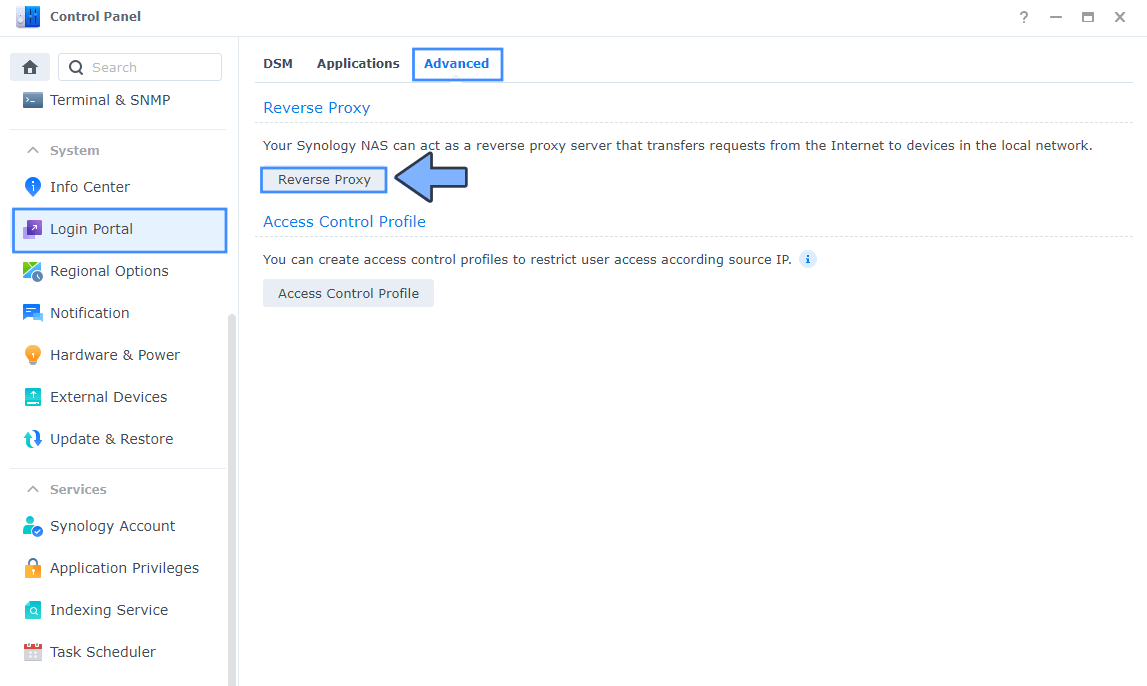
STEP 5
Now click the “Create” button. Follow the instructions in the image below.
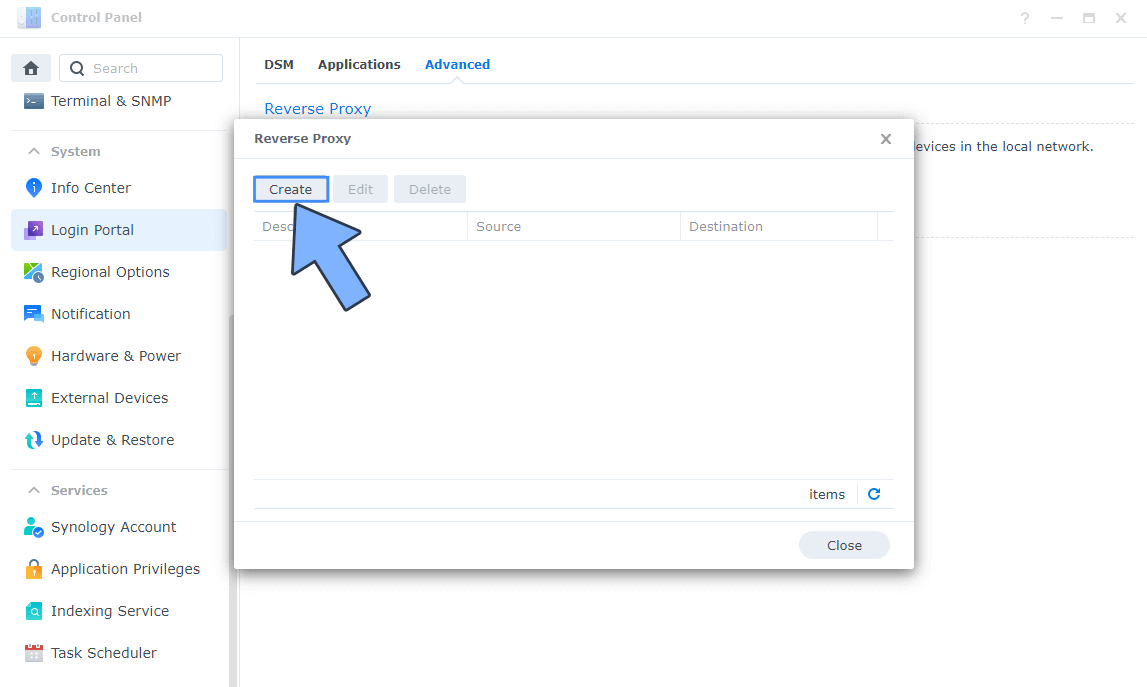
STEP 6
After you click the Create button, the window below will open. Follow the instructions in the image below.
On the General area, set the Reverse Proxy Name description: type in Mullvad. After that, add the following instructions:
Source:
Protocol: HTTPS
Hostname: mullvad.yourname.synology.me
Port: 443
Check Enable HSTS
Destination:
Protocol: HTTPS
Hostname: localhost
Port: 3415
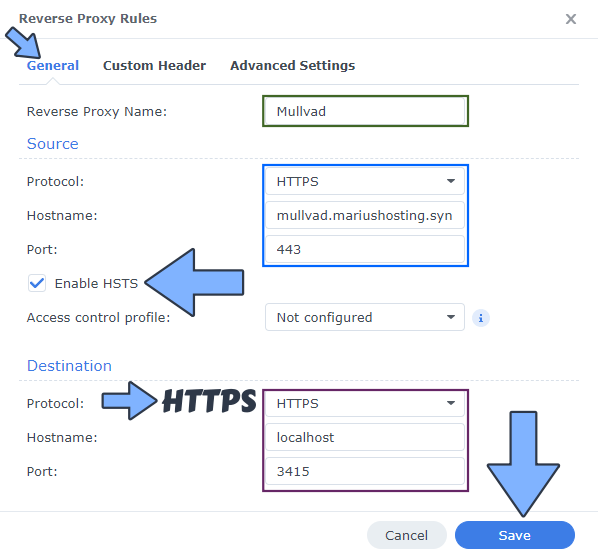
STEP 7
On the Reverse Proxy Rules click the Custom Header tab. Click Create and then, from the drop-down menu, click WebSocket. After you click on WebSocket, two Header Names and two Values will be automatically added. Click Save. Follow the instructions in the image below.

STEP 8
Go to Control Panel / Network / Connectivity tab/ Check Enable HTTP/2 then click Apply. Follow the instructions in the image below.
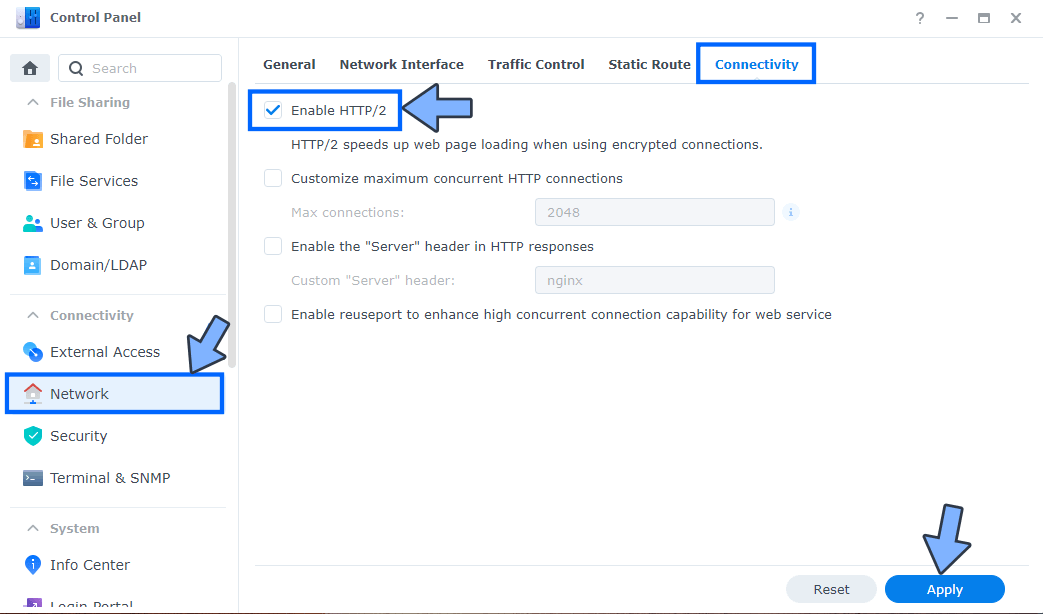
STEP 9
Go to Control Panel / Security / Advanced tab/ Check Enable HTTP Compression then click Apply. Follow the instructions in the image below.
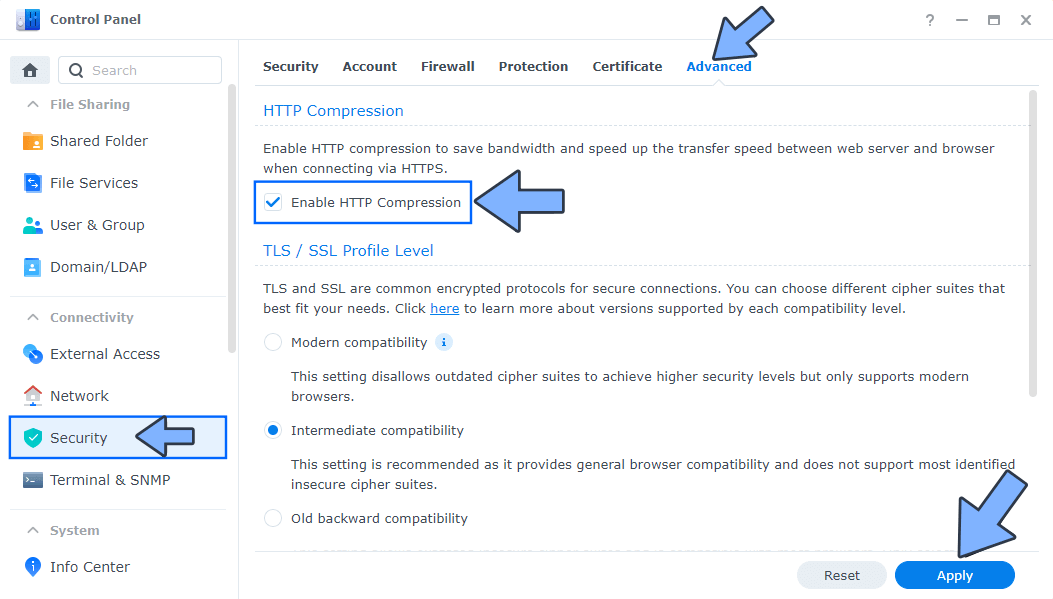
STEP 10
Go to File Station and open the docker folder. Inside the docker folder, create one new folder and name it mullvad-browser. Follow the instructions in the image below.
Note: Be careful to enter only lowercase, not uppercase letters.
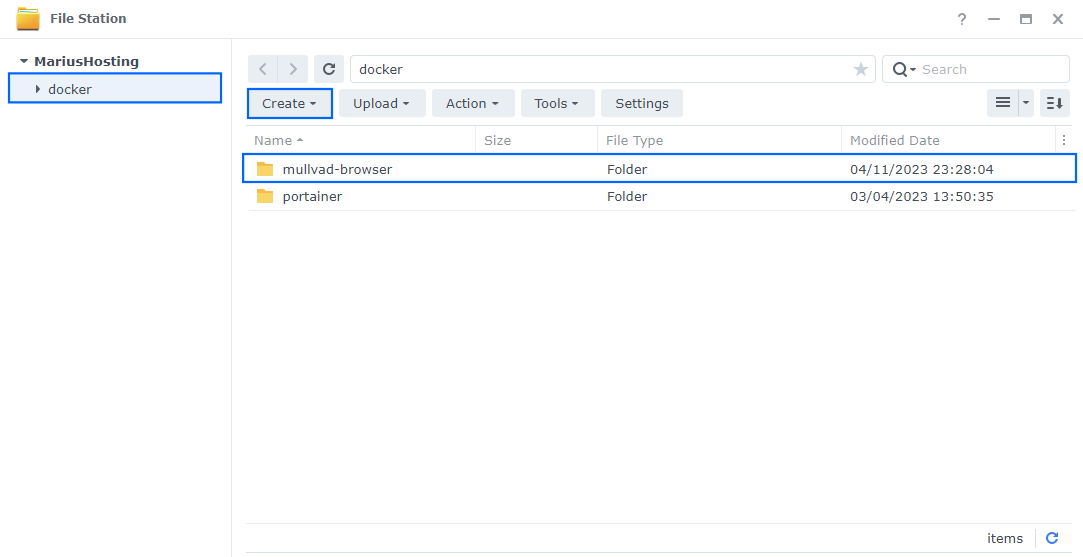
STEP 11
Log into Portainer using your username and password. On the left sidebar in Portainer, click on Home then Live connect. Follow the instructions in the image below.

On the left sidebar in Portainer, click on Stacks then + Add stack. Follow the instructions in the image below.

STEP 12
In the Name field type in mullvad. Follow the instructions in the image below.
services:
mullvad-browser:
image: ghcr.io/linuxserver/mullvad-browser:latest
container_name: Mullvad-Browser
hostname: mullvad-browser
mem_limit: 3g
shm_size: 1g
cpu_shares: 1024
security_opt:
- no-new-privileges:false
- seccomp:unconfined
cap_add:
- NET_ADMIN
ports:
- 3415:3001
volumes:
- /volume1/docker/mullvad-browser:/config:rw
environment:
TZ: Europe/Bucharest
CUSTOM_USER: marius
PASSWORD: mariushosting
PUID: 1026
PGID: 100
#LOCAL_NET: 192.168.0.0/16 # If using a VPN, set this to your local LAN IP range using CIDR notation.
restart: on-failure:5
# VPN Connectivity:
# Generate a WireGuard conf from your VPN provider and copy it into the config mount (mullvad-browser/.config folder) with the following name: wg0.conf
# If a valid conf is found at startup, the container will connect to the VPN and route all traffic over it.
# This container is not designed for routing other containers traffic and should only be used standalone.
Note: Before you paste the code above in the Web editor area below, change the value for TZ. (Select your current Time Zone from this list.)
Note: Before you paste the code above in the Web editor area below, change the value numbers for PUID and PGID with your own values. (Follow my step by step guide on how to do this.) 1026 is my personal PUID value and 100 is my personal PGID value. You have to type in your own values.
Note: Before you paste the code above in the Web editor area below, change the value for CUSTOM_USER. Type in your own username. marius is an example for a username.
Note: Before you paste the code above in the Web editor area below, change the value for PASSWORD. Type in your own password. mariushosting is an example for a password. ⚠️Warning: Do NOT use passwords with special characters.
Note: If you want, you can also set your own VPN by removing the # in front of LOCAL_NET. If you use a VPN, change the 192.168.0.0/16 address with your local LAN IP range using CIDR notation. If you don’t use VPN, then leave the code as it is with the #.
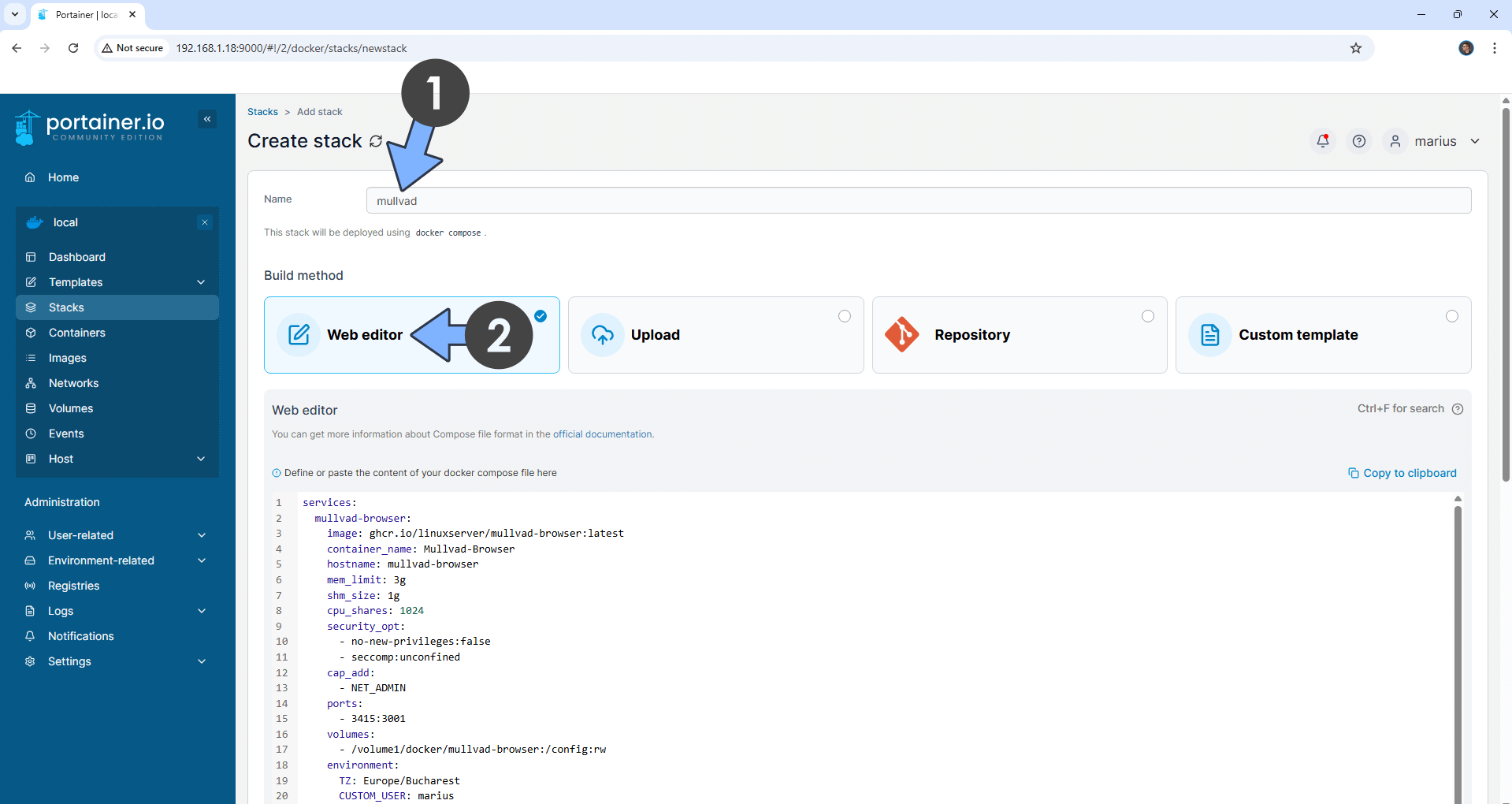
STEP 13
Scroll down on the page until you see a button named Deploy the stack. Click on it. Follow the instructions in the image below. The installation process can take up to a few minutes. It will depend on your Internet speed connection.
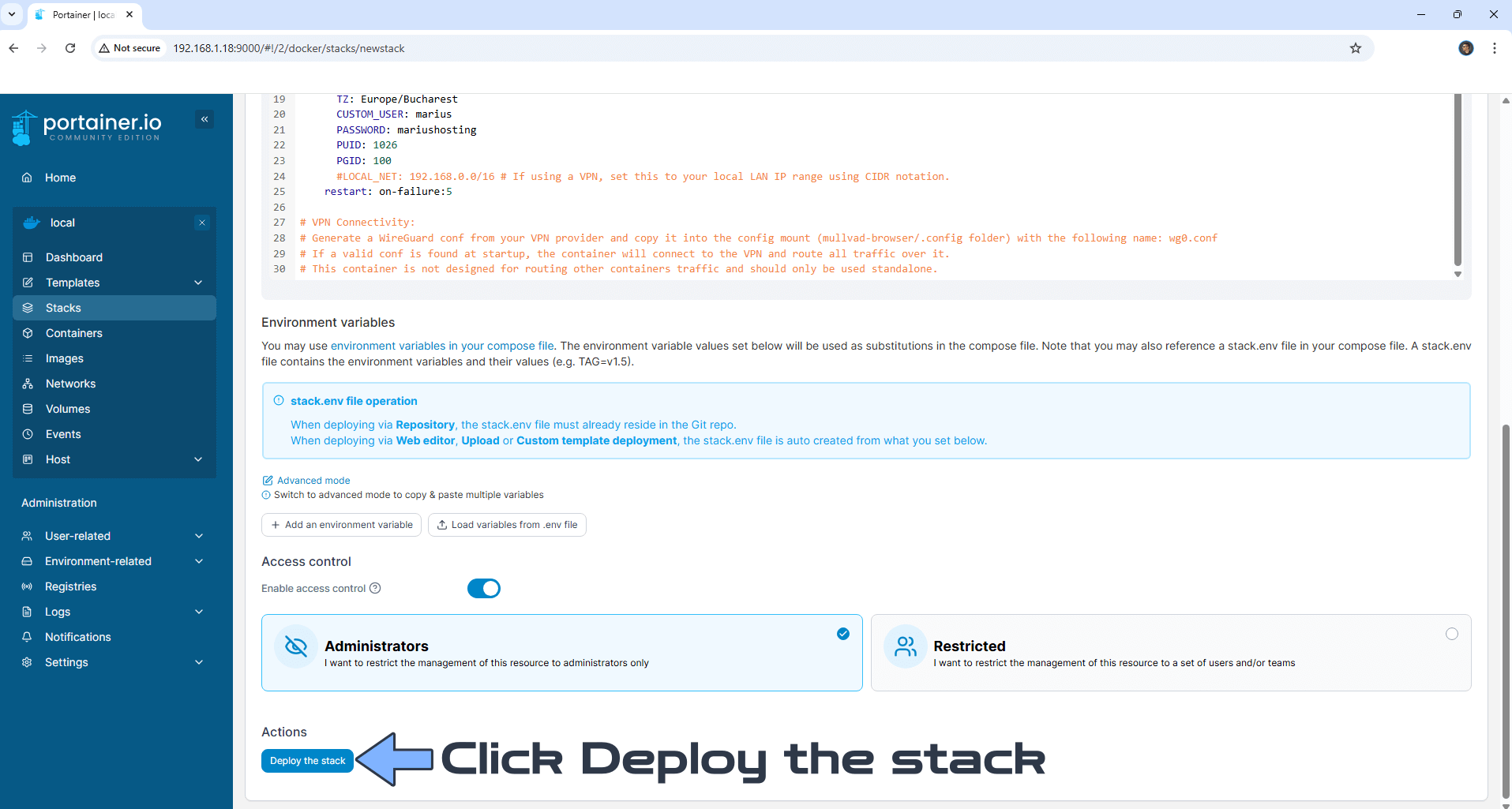
STEP 14
If everything goes right, you will see the following message at the top right of your screen: “Success Stack successfully deployed“.

STEP 15
🟢Please Support My work by Making a Donation. Almost 99,9% of the people that install something using my guides forget to support my work, or just ignore STEP 1. I’ve been very honest about this aspect of my work since the beginning: I don’t run any ADS, I don’t require subscriptions, paid or otherwise, I don’t collect IPs, emails, and I don’t have any referral links from Amazon or other merchants. I also don’t have any POP-UPs or COOKIES. I have repeatedly been told over the years how much I have contributed to the community. It’s something I love doing and have been honest about my passion since the beginning. But I also Need The Community to Support me Back to be able to continue doing this work.
STEP 16
Now open your browser and type in your HTTPS/SSL certificate like this https://mullvad.yourname.synology.me that you have previously created at STEP 6. In my case it’s https://mullvad.mariushosting.synology.me If everything goes right, you will see the Mullvad Browser Login page. Type in your own Username (CUSTOM_USER) and Password (PASSWORD) that you have previously created at STEP 12 then click Sign In. Follow the instructions in the image below.
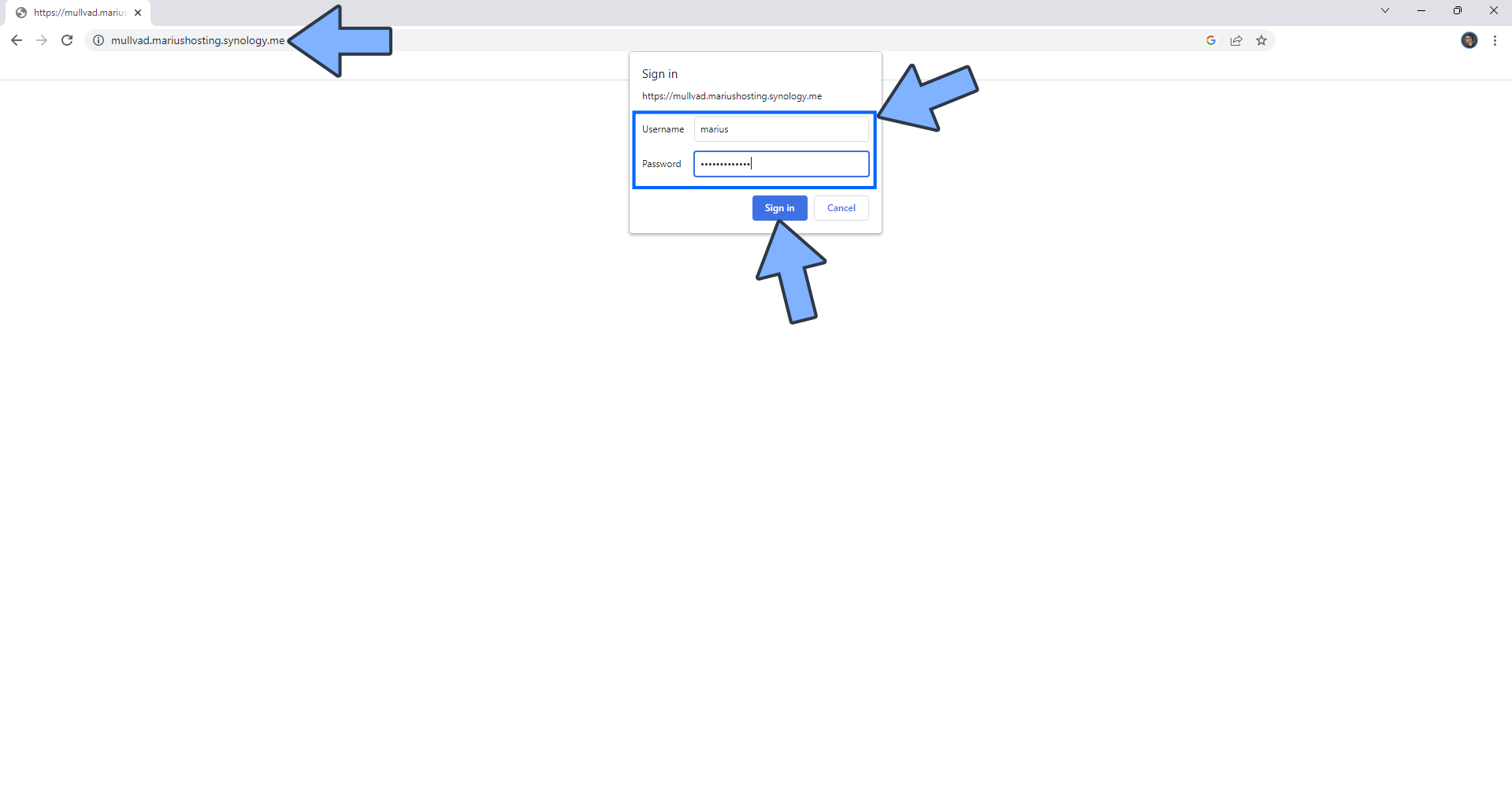
STEP 17
Search for something. Your Mullvad Browser at a glance!
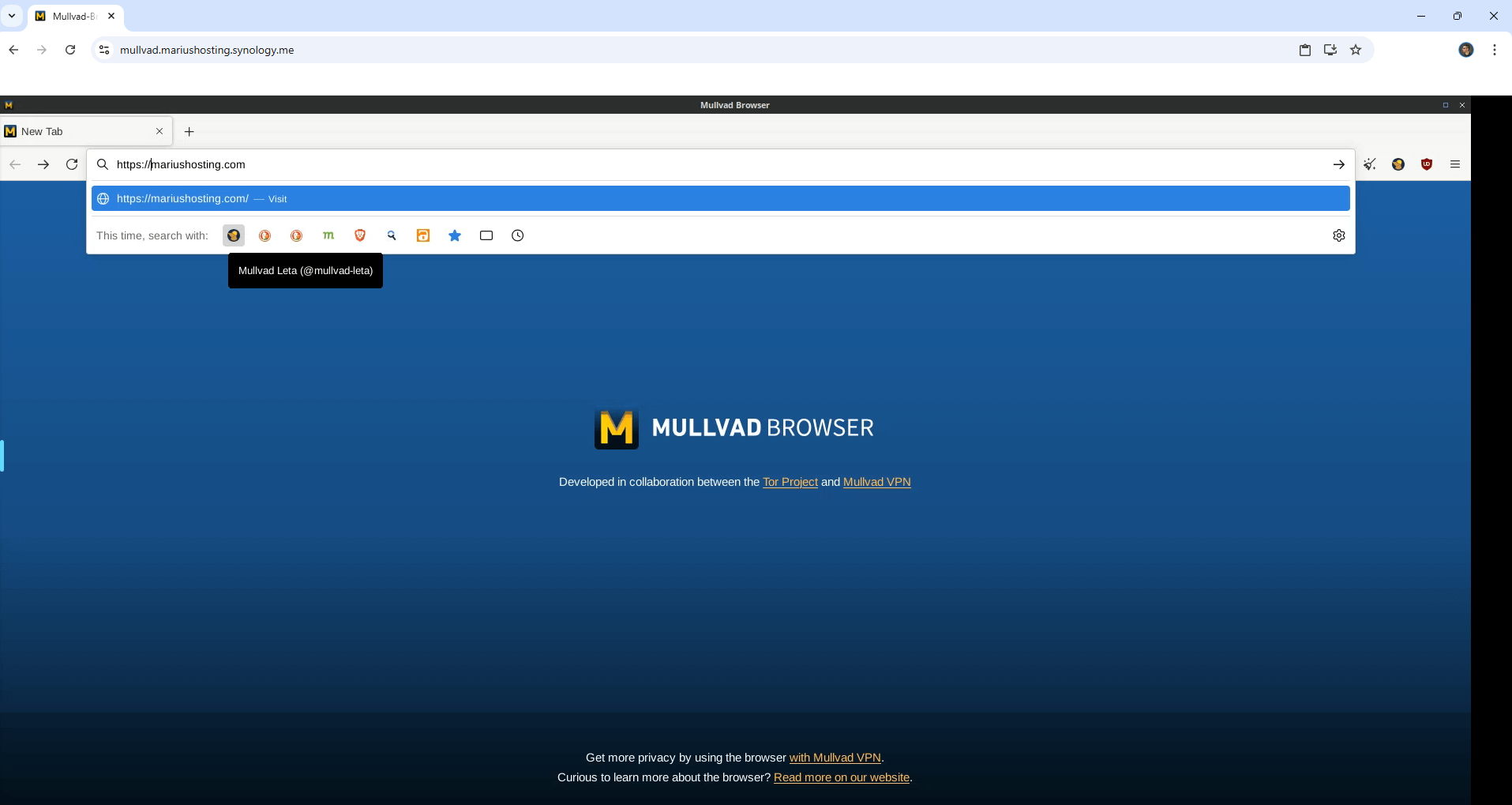
Enjoy Mullvad Browser!
Note: Can I run Docker on my Synology NAS? See the supported models.
Note: How to Back Up Docker Containers on your Synology NAS.
Note: Find out how to update the Mullvad Browser container with the latest image.
Note: How to Free Disk Space on Your NAS if You Run Docker.
Note: How to Schedule Start & Stop For Docker Containers.
Note: How to Activate Email Notifications.
Note: How to Add Access Control Profile on Your NAS.
Note: How to Change Docker Containers Restart Policy.
Note: How to Use Docker Containers With VPN.
Note: Convert Docker Run Into Docker Compose.
Note: How to Clean Docker.
Note: How to Clean Docker Automatically.
Note: Best Practices When Using Docker and DDNS.
Note: Some Docker Containers Need WebSocket.
Note: Find out the Best NAS Models For Docker.
Note: Activate Gmail SMTP For Docker Containers.
This post was updated on Sunday / February 8th, 2026 at 1:10 PM
